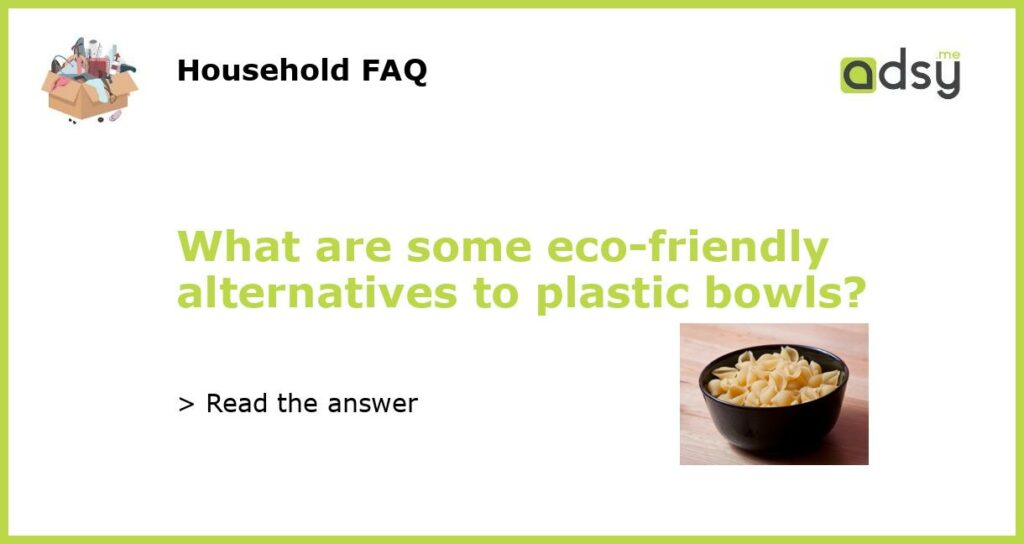Eco-Friendly Alternatives to Plastic Bowls
Plastic bowls have become an everyday item in our kitchens, but the environmental impact they have is significant. Fortunately, there are several eco-friendly alternatives to plastic bowls that are both functional and sustainable.
Bamboo Bowls
Bamboo is a highly sustainable material, making bamboo bowls an ideal alternative to plastic. Bamboo grows at an incredibly fast rate and does not require pesticides or fertilizers. When harvested, it regrows from the same root, making it an excellent renewable resource. Bamboo bowls are lightweight, durable, and come in a variety of stylish designs. They are also biodegradable and can be composted at the end of their life span.
Stainless Steel Bowls
Stainless steel bowls are another eco-friendly alternative to plastic. Stainless steel is a sustainable material as it is made from natural elements such as iron, chromium, and nickel. Stainless steel bowls are non-toxic, durable, and resistant to rust and corrosion. They are also easy to clean and maintain, making them a practical choice for any kitchen. Additionally, stainless steel bowls are recyclable, reducing waste and minimizing their environmental impact.
Glass Bowls
Glass bowls are a classic and eco-friendly choice for replacing plastic. Glass is 100% recyclable and does not degrade or lose quality when recycled. Glass bowls are microwave and oven-safe, making them versatile for different cooking needs. They are also non-toxic, free from harmful chemicals like BPA or phthalates that can be found in some plastic bowls. However, glass bowls can be more fragile than other alternatives, so they require careful handling to prevent breakage.
Silicone Bowls
Silicone bowls are a modern and eco-friendly alternative to plastic. Silicone is made from silica, a natural element found in sand, making it a sustainable choice. Silicone bowls are durable, flexible, and heat-resistant, making them suitable for a wide range of uses in the kitchen. They are also lightweight and easy to clean. When it comes to disposal, silicone is not biodegradable, but it can be recycled. Check with your local recycling facilities to see if they accept silicone for recycling.
Coconut Bowls
Coconut bowls are a unique and eco-friendly option for replacing plastic bowls. Made from the shells of coconuts that would otherwise go to waste, coconut bowls are a sustainable choice. They are biodegradable, compostable, and have a charming natural aesthetic. Coconut bowls are lightweight, durable, and perfect for serving salads, grain-based meals, or snacks. However, coconut bowls require special care to maintain their quality, such as avoiding excessive heat or soaking for extended periods.
In conclusion, plastic bowls have a significant impact on the environment, but there are many eco-friendly alternatives available. Bamboo, stainless steel, glass, silicone, and coconut bowls all provide sustainable options for replacing plastic in our kitchens. By choosing these eco-friendly alternatives, we can reduce our reliance on plastic and make a positive impact on the planet.






